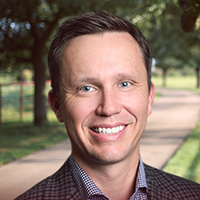Our Progress-Based Approach to Long-Term Treatment for Chronic Relapse
“If there is no struggle, there is no progress.”
From Resistance to Willingness
The Relationship Between Honesty and Willingness

At Burning Tree Ranch we have the time and the skillset to address the entire person: mind, body, and spirit.
What they Say They Want
What Progress Looks Like at the Ranch
Progress-Based Assessments
Burning Tree addresses co-occurring disorders that may have blocked our clients from achieving recovery in previous, shorter-term treatment episodes. We do this in an intimate, progress-based setting that integrates world-class clinical interventions with useful, esteem-building life skills. Each of our clients undergo advanced psychological screenings, clinical evaluations, and medical assessments to determine the best, most tailored treatment plans for their needs.
If you want to learn more about Burning Tree Ranch’s authentic, long-term approach, call our admissions team to learn more.
Our Chronic relapse therapies
Burning Tree Ranch utilizes
addiction medicine to aid in the diagnosis, treatment and recovery of persons with the disease of addiction.
A form of goal-oriented therapy that helps our clients understand how their thoughts affect their actions, leading to healthier thinking patterns and behaviors.
An evidence-based psychotherapy approach that helps our clients better manage stress, regulate emotions, and improve relationships with others.
An interactive psychotherapy
technique that helps our clients reduce the emotional distress caused by the unresolved pain associated with trauma.
An experiential therapy that imparts physical, cognitive, and emotional benefit to our clients as they engage the important work of establishing lifelong recovery.
A form of positive psychotherapy that helps our clients clarify their values and connect with their authentic selves, leading to a greater sense of self-worth and empowerment.
A humanistic form of psychotherapy that helps our clients concentrate on the present moment, and engage the
opportunity to they have increase
personal freedom and fulfillment.
Facilitated by a licensed clinician, group therapy helps our clients develop improved communication skills, boundaries, and self-awareness in a therapeutic setting.
We take into account the whole
person, not just the addiction. Our holistic approach enables our clients to discovery well-being for the mind, body, and spirit.
The goal of individual therapy is to motivate the client to explore certain behaviors that may interfere with, delay, or sabotage the opportunity to achieve permanent, lifelong recovery.
A form of psychotherapy that helps our clients re-build relationships with loved ones, and establish new relationships with a healthy support group of peers.
Neurofeedback Therapy is a noninvasive treatment designed to instruct patients as to how to control brainwave activity in order to change behaviors.
The Twelve Steps teach our clients how to live by a set of spiritual principles that are taught in the Big Book of Alcoholics Anonymous.
